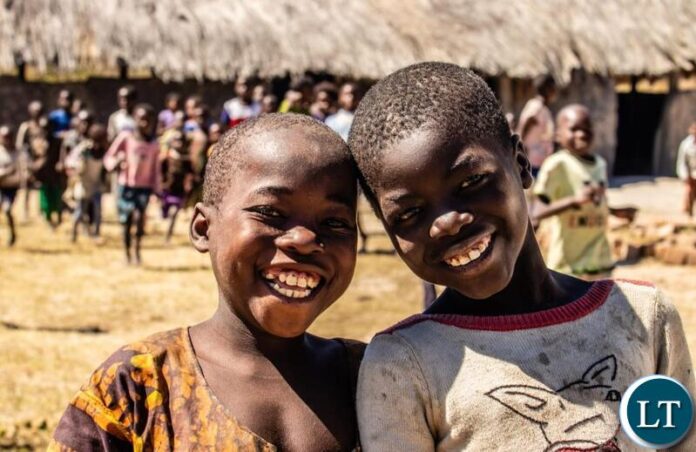
By Fr. Charlie B. Chilufya, S.J.
“Let the little children come to me, and do not hinder them, for the kingdom of heaven belongs to such as these.” — Matthew 19:14
Just yesterday, UNICEF released its 2025 Global HIV Estimates — and the numbers are a sobering call to action. While the world has made undeniable progress in reducing HIV infections among children, the report shows that too many children — especially in Africa — are still dying unnecessarily. And yes, Zambia is part of that picture.
In 2024 alone, 120,000 children were newly infected with HIV, and 75,000 children under the age of 15 died from AIDS-related causes. These are children who could have lived — if they had been tested early, treated promptly, and embraced by a health system that sees them.
The new report tells us what we already know deep down: we are not doing enough.
Zambia’s Children: Progress, But Still Left Behind
- 65,000 adolescents (ages 10–19) are living with HIV in Zambia — but nearly 1 in 10 are not yet on treatment.
- 41,300 children (ages 0–14) are currently receiving ART — but an estimated 14,000 in that age group remain untreated.
- We have approximately 600,000 AIDS orphans in Zambia — children who have lost one or both parents to AIDS-related illness.
- New infections among children dropped significantly between 2010 and 2019 — but we’re still seeing thousands of preventable infections each year.
These children are not just numbers. They are in our homes, our churches, our communities. They are our future. And many of them are being left behind — not because we lack the medicine, but because we have not yet aligned our political will, moral voice, and public health systems to fully protect them.
A Crisis of Justice and Compassion
The UNICEF report makes it painfully clear: only 55% of HIV-positive children worldwide receive treatment. In Sub-Saharan Africa — which bears 86% of the global burden — some regions, like West and Central Africa, have treatment coverage as low as 37%. Zambia fares better than many neighbours — but our children are still at risk.
This is not just a health crisis. It is a justice crisis.
When Jesus said, “Let the little children come to me,” He wasn’t speaking metaphorically. He meant that children must never be hindered — not by indifference, not by poverty, not by systems that ignore them. Every untreated child in Zambia today is a child we have failed to see with the eyes of compassion and the urgency of justice.
What Zambia Must Do Now
- Close the treatment gap for children and adolescents
Ensure every child living with HIV has access to early testing and antiretroviral treatment — particularly in rural and underserved provinces. - Empower our faith-based clinics and missions
Church-run health centres have been lifelines for children in remote areas. They must be fully equipped and supported as critical partners in the national HIV response. - Protect and support AIDS orphans
More than 600,000 Zambian children have lost one or both parents to HIV. They need not just food and schooling — they need love, safety, and long-term support. - Tackle stigma — especially for adolescents
Young people still fear discrimination in schools, churches, and clinics. We must train our leaders, teachers, and health workers to be sources of healing, not silence. - Push for regional and global solidarity
Zambia must advocate alongside neighbours for equitable access to child-friendly HIV formulations, increased donor funding, and shared strategies for the most vulnerable.
Let the Children Come — And Let Nothing Stand in Their Way
As a Jesuit priest, I am moved not only by the data — but by the Gospel truth it demands of us. Jesus welcomed children as full citizens of the Kingdom. To ignore them in our policies, our budgets, or our healthcare priorities is to ignore Christ Himself.
Let us not fail the children of Zambia. Let us remove the barriers — be they policy, funding, stigma, or silence — that still stand in their way. Because no child in our country should die of AIDS in 2025.
This is our time.
This is our test.
This is our turn to say: Let the children come.
Fr. Charlie B. Chilufya, S.J.
Jesuit Priest | Public and International Affairs Analyst
Sources:
- UNICEF 2025 Global HIV Estimates (released July 2025)
- UNICEF Zambia: HIV/AIDS Facts
- UNAIDS Zambia Country Data 2024
- National HIV/AIDS Council Reports
- WHO Global Health Observatory


Firstly why reference religion into this ??
It’s place is purely in the church and home !!!
with this GRZ I would say Investors come first befor the health of these unfortunate children/ adults
The must do their great part and beyond rationally,. Families had to stay on top of things whilst churches or religious leads on morality issues. None will fix it, every country got its own big issues than coming to Zambia to fix issues. It only headlines.
Well shame on us all! Where is looking after thy brother, thy neighbor in the Christian nation of Zambia? Busy differing on political issues while politicians are busy filling their pockets.
Comments are closed.